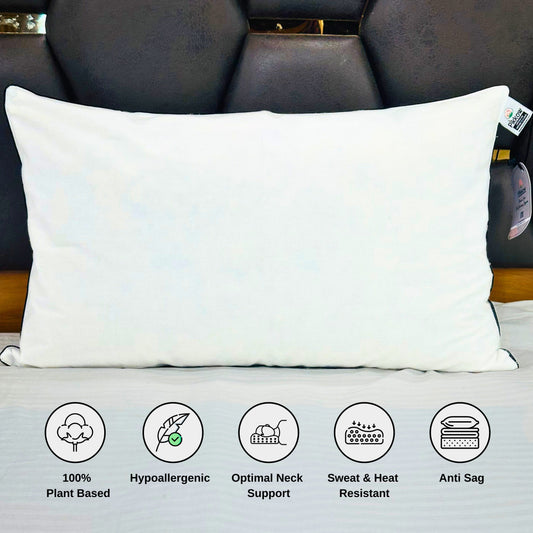Imagine waking up each morning feeling completely refreshed and ready to conquer the day. For many, this seems like an elusive dream, especially with the demands and distractions of modern life. However, achieving a good night’s sleep and waking up revitalised is entirely possible with the right strategies. This blog will unveil helpful sleep tips that genuinely work, ensuring you start each day with energy and enthusiasm.
Embrace Your Natural Sleep Rhythms
Before delving into helpful sleep tips, it's essential to understand your natural sleep rhythms. Our bodies follow a circadian rhythm, a 24-hour internal clock that regulates sleep-wake cycles. Aligning your sleep schedule with this natural rhythm can dramatically improve sleep quality and overall well-being.
Transform Your Bedroom into a Sleep Haven
- Cultivate a Serene Environment: Your bedroom should be a peaceful retreat. Minimise noise with soundproofing or white noise machines, and keep the room dark with blackout curtains. The ideal sleep temperature is around 65°F (18°C).
- Choose Eco-Friendly Bedding: Opt for natural, breathable materials like silk cotton mattresses and Kapok pillows. These sustainable options not only enhance comfort but also support your commitment to an eco-friendly lifestyle.
- Declutter for Calmness: A clutter-free room promotes relaxation. Keep your space tidy and free from distractions to foster a tranquil atmosphere conducive to sleep.
Establish a Sleep-Inducing Routine
- Consistency is Key: Going to bed and waking up at the same time every day, even on weekends, helps regulate your body's internal clock. Maintaining this consistency can promote deeper and more restorative sleep.
- Bedtime Rituals: Develop a calming pre-sleep routine. Activities like reading, journaling, or taking a warm bath can signal to your body that it's time to wind down.
Adopt Relaxation Techniques
- Mindfulness and Meditation: Practices like deep breathing exercises, progressive muscle relaxation, or mindfulness meditation can quiet your mind and prepare your body for sleep. Apps like Calm or Insight Timer offer guided sessions tailored for bedtime.
- Gentle Yoga: Engaging in gentle stretches or yoga poses before bed can help release tension and promote relaxation.
Minimise Screen Exposure
- Digital Detox: The blue light emitted by screens can interfere with melatonin production, making it harder to fall asleep. Aim to stay away from screens for at least an hour before bedtime.
- Night Mode: If screen time is unavoidable, use night mode settings to reduce blue light exposure.
Nutritional Habits for Better Sleep
- Mind Your Caffeine and Alcohol Intake: Both caffeine and alcohol can disrupt sleep patterns. Reduce intake, especially during the hours before bedtime.
- Light Evening Meals: A heavy meal before bed can lead to discomfort and indigestion. Choose a light and balanced snack if you feel hungry in the evening.
Exercise Regularly
- Daily Exercise: Engaging in regular physical activity can make it easier to fall asleep and enhance the quality of your sleep. Try to incorporate at least 30 minutes of moderate exercise into your routine on most days of the week.
- Timing Matters: While exercise is beneficial, working out too close to bedtime can be stimulating. Aim to finish your workout at least a few hours before bedtime.
Manage Stress and Anxiety
- Journaling: Recording your thoughts and concerns before bed can help clear your mind and alleviate anxiety.This practice can also help identify patterns affecting your sleep.
- Professional Support: If stress or anxiety is significantly impacting your sleep, consider seeking help from a therapist or counsellor. They can provide strategies and support to manage your mental health effectively.
Explore Natural Sleep Aids
- Herbal Remedies: Teas made from herbs like chamomile or valerian root can promote relaxation and help you unwind before bed.
- Aromatherapy: Essential oils such as lavender, cedarwood, or bergamot can create a calming atmosphere. Diffuse them in your bedroom or apply a few drops to your pillow.
Listen to Your Body
- Recognize Sleep Cues: Pay attention to signs of tiredness, such as yawning or heavy eyelids. Acting on these cues can help you fall asleep more easily.
- Don’t Force It: If you can’t fall asleep after 20 minutes, get up and engage in a quiet, non-stimulating activity until you feel sleepy.
Additional Helpful Sleep Tips
- Mindful Napping: While short naps can be refreshing, long or irregular napping during the day can negatively affect your nighttime sleep. Limit naps to under 30 minutes and avoid late afternoon naps.
- Smart Hydration: Drink enough water throughout the day to stay hydrated but reduce intake close to bedtime to minimise nighttime awakenings.
- Consider a Sleep Study: If you constantly struggle with sleep despite following these helpful sleep tips, consult a healthcare provider. A sleep study can diagnose potential sleep disorders, such as sleep apnea, requiring specific treatments.
- Use Sleep Technology Wisely: Apps and wearable devices that track sleep patterns can provide valuable insights and suggestions for improving sleep habits. Use these tools to fine-tune your sleep routine.
Conclusion
By incorporating these helpful sleep tips into your daily routine, you can significantly enhance your sleep quality and wake up refreshed each morning. Keep in mind that improving your sleep quality is a gradual journey. Consistency and small adjustments can lead to profound improvements in how you feel each day. Prioritise your sleep, adopt these strategies, and enjoy the benefits of waking up revitalised and ready to embrace the day.
Imagine waking up each morning feeling completely refreshed and ready to tackle the day. To enhance your sleep and support your eco-friendly lifestyle, consider Pikkow pillows. Made from biodegradable Kapok, these pillows offer exceptional comfort and support while being free from plastics and chemicals. Upgrade to Pikkow pillows for a sustainable, restful sleep and a more invigorated start to your day.
Sweet dreams and restful nights await you with these helpful sleep tips!
FAQs
-
How long does it take to see improvements in sleep quality?
Improvement in sleep quality typically takes a few weeks of consistent effort. Changes in sleep patterns and habits gradually lead to better rest.
-
What’s the ideal temperature for sleeping?
The optimal sleep temperature is around 65°F (18°C). This cool environment helps regulate body temperature and enhances sleep quality.
-
How can I reduce screen time before bed?
Limit screen use at least an hour before bedtime. Consider using apps with blue light filters or switching to activities that don’t involve screens, like reading a book.
-
Is it okay to nap during the day?
Short naps of 20-30 minutes can be beneficial, but avoid napping late in the afternoon to prevent interference with nighttime sleep.
-
What are some natural ways to improve sleep?
Herbal teas, essential oils, and relaxation techniques like meditation can help promote better sleep. Incorporating these into your nightly routine can enhance relaxation.












